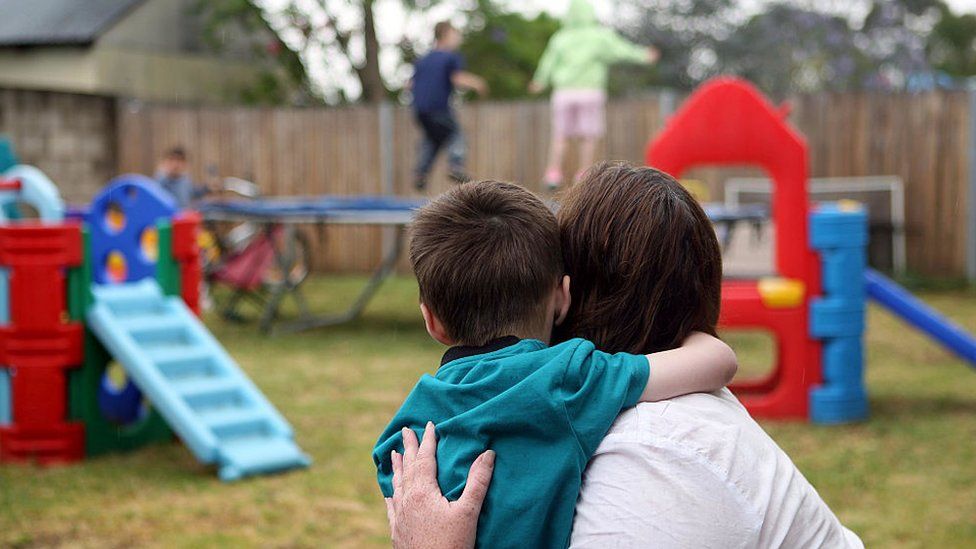
The cost of living was previously blamed for a rise in the number of children needing foster care
Ministers have been urged to “rocket boost” fostering to tackle a shortage of carers.
Dame Rachel de Souza, the Children’s Commissioner for England, has warned that 71% of people who complete a fostering form subsequently drop out.
She fears bureaucracy may be putting people off and has suggested ministers could learn from the success of the Homes from Ukraine scheme.
The government has said it is investing £27m in the foster care system.
Nearly 70,000 children live with almost 55,000 foster families across the UK each day, according to the Fostering Network charity.
This is nearly three-quarters of the 98,000 children in care away from home on any one day in the UK, the charity has said.
Dame Rachel said the Homes for Ukraine scheme, which found homes for 100,000 Ukrainian refugees last year, showed there was an “untapped well” of people who can foster.
She told BBC Radio 4’s Today programme the number of people who enquired about foster care and then did not go ahead with their applications seemed “very high”.
“We need to make sure that bureaucracy don’t get in the way,” she said.
She urged the government to run a national fostering campaign.
Image source, PA Media
Dame Rachel said it was “really important that we rocket boost fostering”
The Department for Education (DfE) said it had increased the national minimum allowance for foster carers by 12.5% and was piloting a foster care recruitment hub in the north east.
Earlier this year government figures showed there were 4,500 in West Yorkshire alone.
Rising costs and a fallout from Covid were blamed for the increase in the number of children going into foster care and for the shortage of foster families.
Children’s minister Claire Coutinho told the BBC the pilot programme in the north east put together local hubs guiding families who wanted to foster.
“You can’t just fund a system with money, you do need to make sure the reforms work properly,” she said.
She explained that last year 138,000 people made enquiries to become a foster carer but only six per cent of them became one.
“People call up and say they want to be a foster carer and then they don’t necessarily get that hand-holding to make what is ultimately a big decision in your life,” she added.
Ms Coutinho said £11bn was being spent on the children’s social care system overall.
Image source, UK Parliament/PA Media
Ms Coutinho said the government had plans in place
Last year the MacAlister review of children’s social care in England called for £2.6bn of new spending over four years.
The government later faced criticisms for announcing £200m of investment in response.
But Ms Coutinho said the funding was not falling short.
She said the £200m was for testing out “really ambitious” plans to respond to the MacAlister review.
“We have got two years to make sure that the plans we have got in place work well on the ground,” she added.








